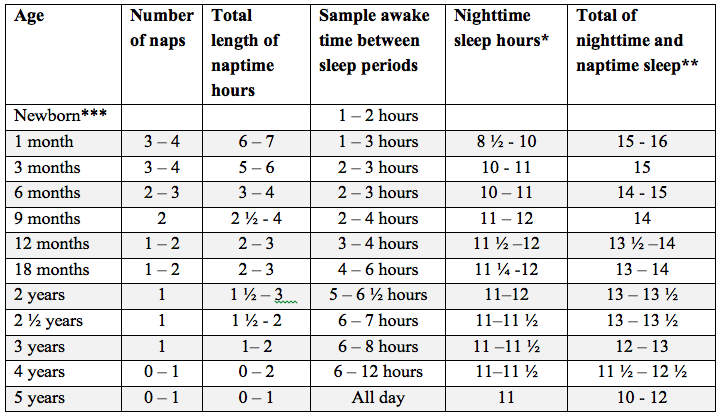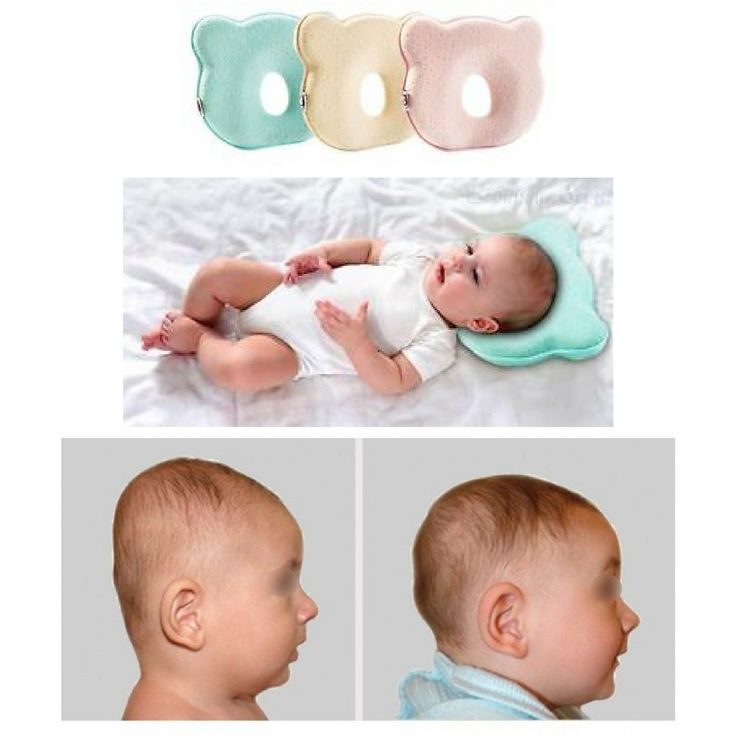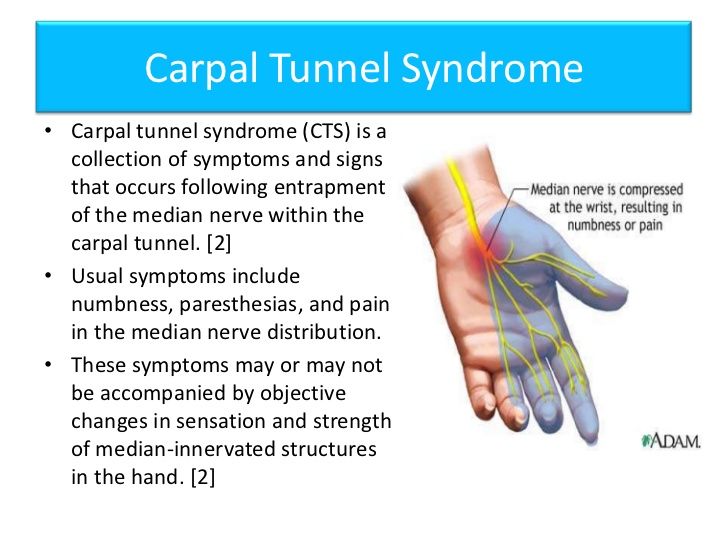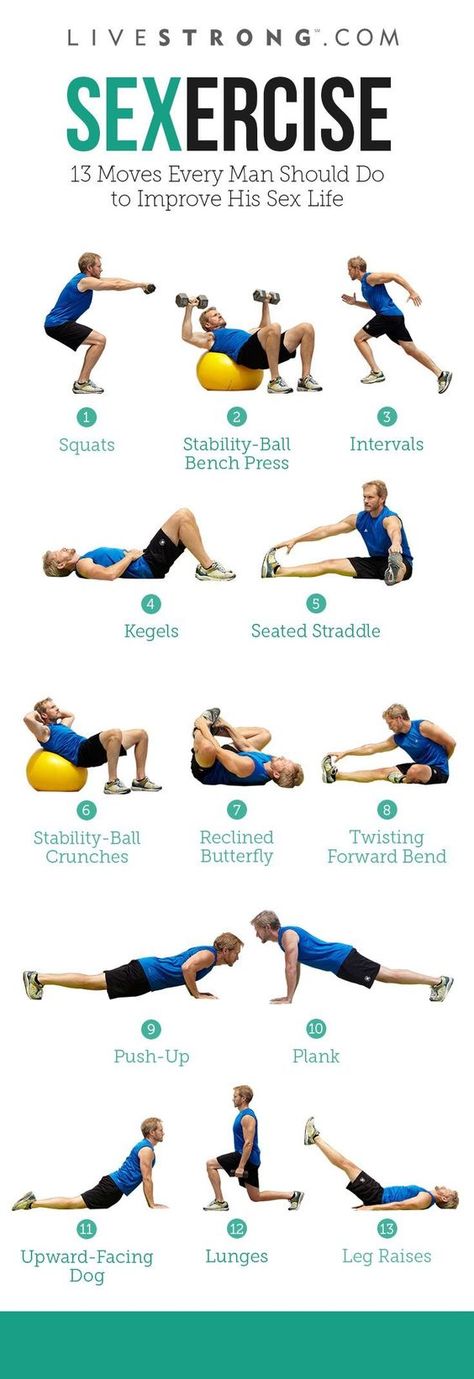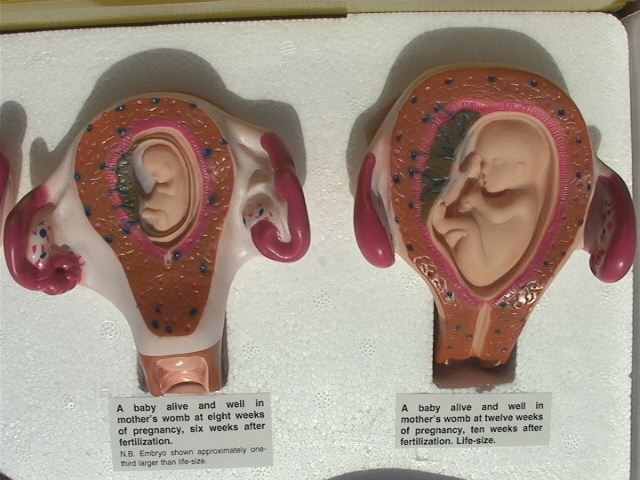Sleeping habits of infants
Baby sleep: what to expect at 2-12 months
Baby sleep needs
Babies need sleep to grow and develop well. But babies’ sleep needs vary, just as the sleep needs of older children and adults do. Your baby might be doing well with more or less sleep than other babies the same age.
Your baby’s mood and wellbeing is often a good guide to whether your baby is getting enough sleep. If your baby is:
- wakeful and grizzly, they might need more sleep
- wakeful and contented, they’re probably getting enough sleep.
How baby sleep changes from 2 to 12 months
As they get older, babies:
- sleep less in the daytime
- are awake for longer between naps
- have longer night-time sleeps and wake less at night
- need less sleep overall.
2-3 months: what to expect from baby sleep
At this age, babies sleep on and off during the day and night. Most babies sleep for 14-17 hours in every 24 hours.
Young babies sleep in cycles that last 50-60 minutes. In young babies, each cycle is made up of active sleep and quiet sleep. Babies move around and grunt during active sleep, and sleep deeply during quiet sleep.
At the end of each cycle, babies wake up for a little while. They might grizzle or cry. They might need help to settle for the next sleep cycle.
At 2-3 months, babies start developing night and day sleep patterns. This means they tend to start sleeping more during the night.
Around 3 months: what to expect from baby sleep
Babies keep developing night and day sleep patterns.
Their sleep cycles consist of:
- light sleep, when baby wakes easily
- deep sleep, when baby is sound asleep and very still
- dream sleep, when baby is dreaming.
Sleep cycles also get longer, which might mean less waking and resettling during sleep. At this age, some babies might regularly be having longer sleeps at night – for example, 4-5 hours.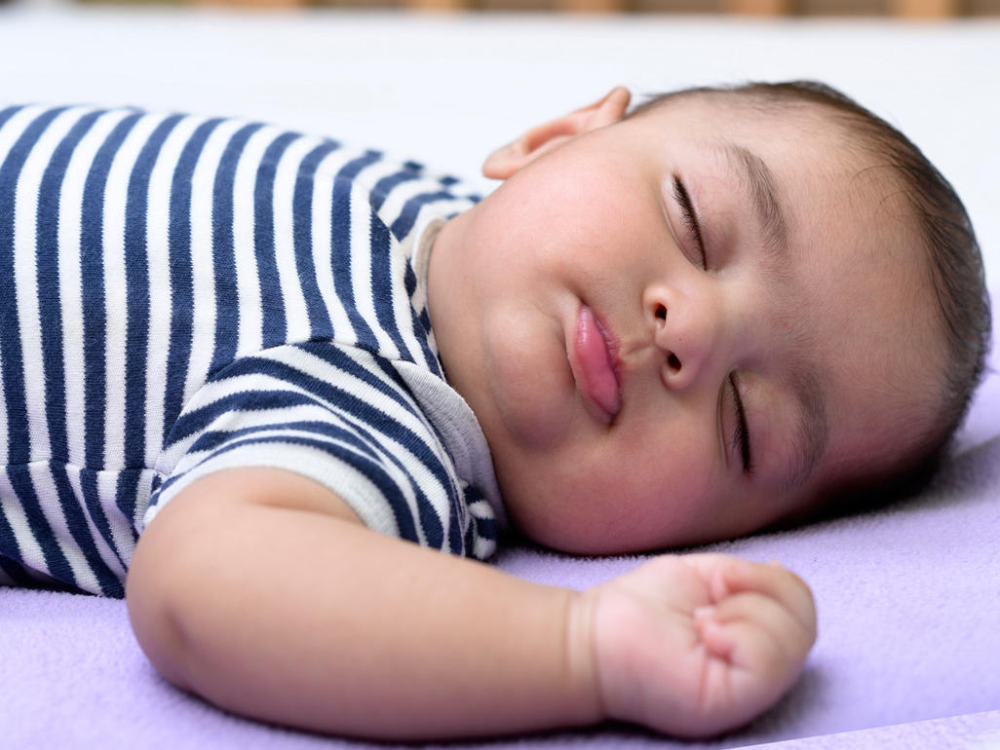
Most babies still sleep for 14-17 hours in every 24 hours.
3-6 months: what to expect from baby sleep
At this age, most babies sleep for 12-15 hours every 24 hours.
Babies might start moving towards a pattern of 2-3 daytime sleeps of up to two hours each.
And night-time sleeps get longer at this age. For example, some babies might be having long sleeps of six hours at night by the time they’re six months old.
But you can expect that your baby will still wake at least once each night.
6-12 months: what to expect from baby sleep
Babies sleep less as they get older. By the time your baby is one year old, baby will probably sleep for 11-14 hours every 24 hours.
Sleep during the night
From about six months, most babies have their longest sleeps at night.
Most babies are ready for bed between 6 pm and 10 pm. They usually take less than 40 minutes to get to sleep, but some babies take longer.
At this age, baby sleep cycles are closer to those of grown-up sleep – which means less waking at night. So your baby might not wake you during the night, or waking might happen less often.
But many babies do wake during the night and need an adult to settle them back to sleep. Some babies do this 3-4 times a night.
Sleep during the day
At this age, most babies are still having 2-3 daytime naps that last for between 30 minutes and 2 hours.
6-12 months: other developments that affect sleep
From around six months, babies develop many new abilities that can affect their sleep or make them more difficult to settle:
- Babies learn to keep themselves awake, especially if something interesting is happening, or they’re in a place with a lot of light and noise.
- Settling difficulties can happen at the same time as crawling. You might notice your baby’s sleep habits changing when baby starts moving around more.
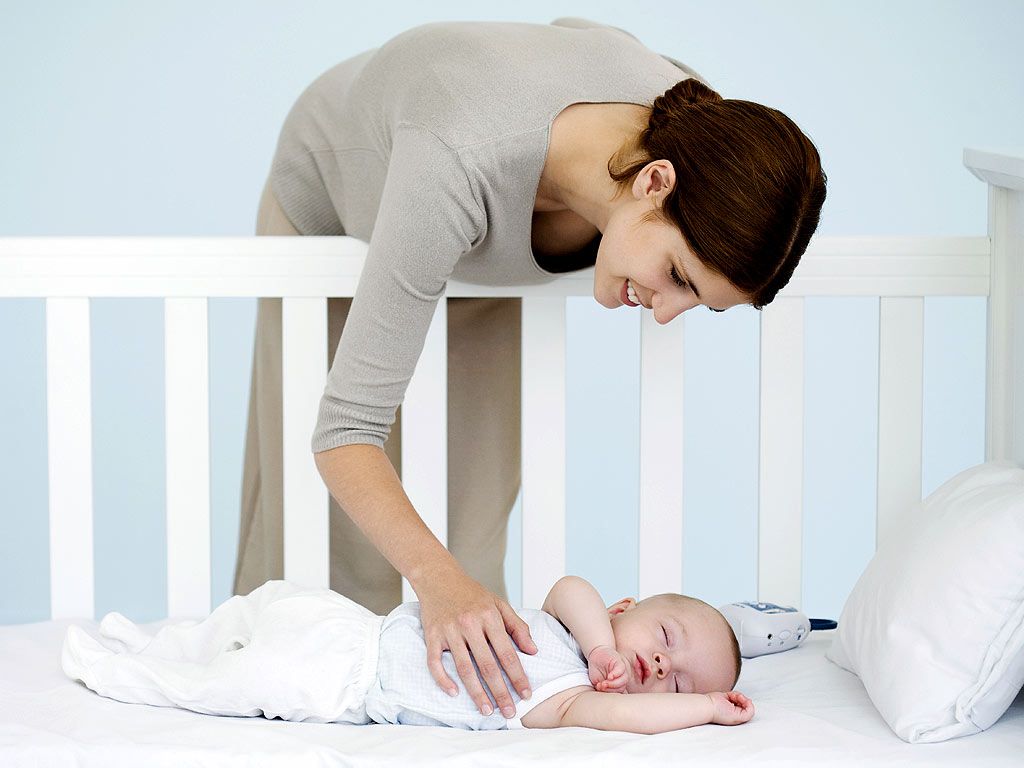
- Babies learn that things exist, even when they’re out of sight. Now that your baby knows you exist when you leave the bedroom, baby might call or cry out for you.
- Separation anxiety is when babies get upset because you’re not around. It might mean your baby doesn’t want to go to sleep and wakes up more often in the night. As babies mature they gradually overcome this worry.
6-12 months: night-time feeding
From around six months of age, if your baby is developing well, it’s OK to think about night weaning and phasing out night feeds. But if you’re comfortable with feeding your baby during the night, there’s no hurry to phase out night feeds.
You can choose what works best for you and your baby.
A rollover feed is a late feed somewhere between 10 pm and midnight. Some parents find that rollover feeds help babies sleep longer towards morning. If this works for you and your baby, it’s fine to give baby a rollover feed.
Concerns about baby sleep
If you’re concerned about your baby’s sleep, it can be a good idea to track your baby’s sleep for a week or so.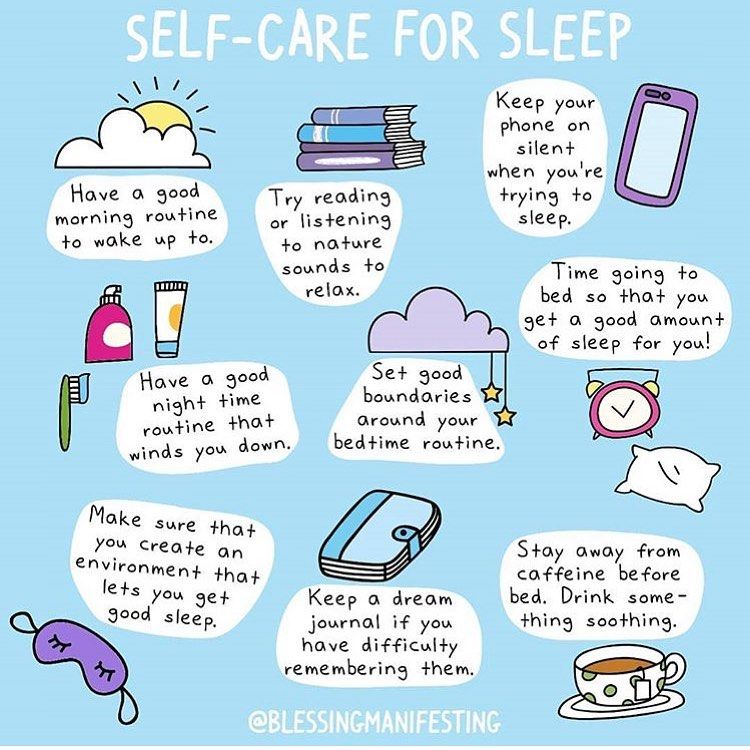 This can help you get a clear picture of what’s going on.
This can help you get a clear picture of what’s going on.
You can do this by drawing up a simple chart with columns for each day of the week. Divide the days into hourly blocks, and colour the intervals when your baby is asleep. Keep your chart for 5-7 days.
Once completed, the chart will tell you things like:
- when and how much sleep your baby is getting
- how many times your baby is waking during the night
- how long your baby is taking to settle after waking.
You can also record how you tried to resettle your baby and what worked or didn’t work.
Then you can compare the information in your chart with the general information about baby sleep needs above:
- How does your child compare to other babies the same age? If your baby is wakeful and grizzly and getting much less sleep than others, your baby might need more opportunities for sleep.
- How many times is your baby over six months old waking up during the night? If it’s 3-4 times a night or more, you might be feeling very tired.
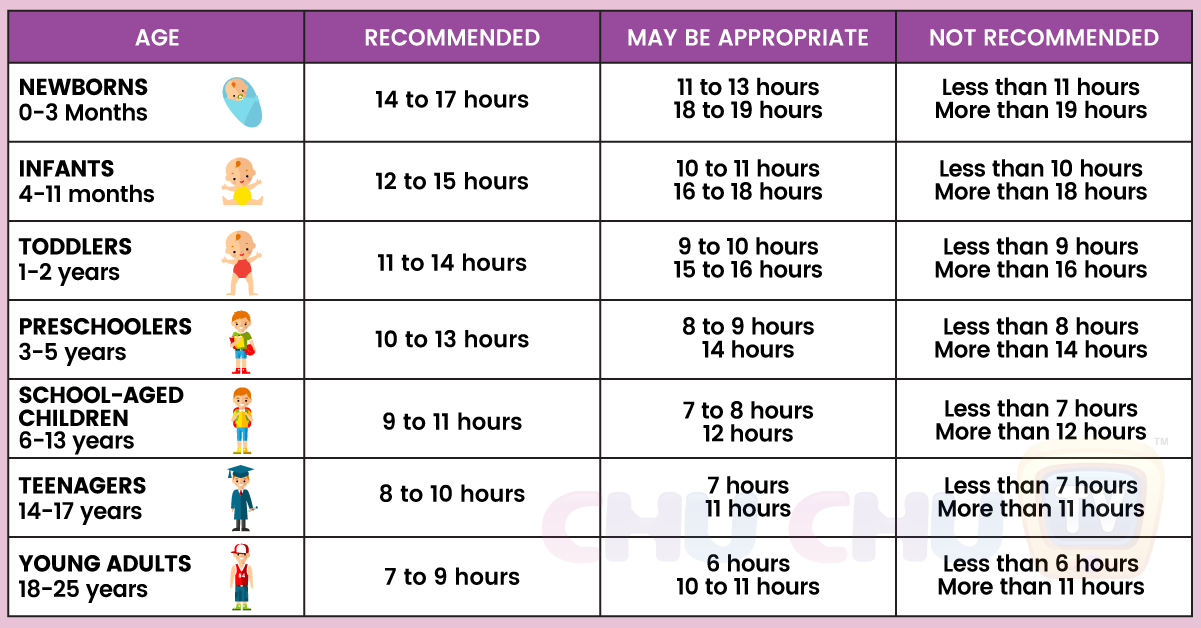 You might want to think about phasing out some of your baby’s sleep habits.
You might want to think about phasing out some of your baby’s sleep habits.
If you decide you need to see a professional for help with your baby’s sleep, take your chart with you.
If you’re concerned about your baby’s sleep, it’s a very good idea to see a child health professional for help. You could start by talking with your GP or child and family health nurse.
How baby sleep patterns affect grown-ups
Babies and grown-ups need sleep for wellbeing, but babies sleep differently from adults. Most parents of babies under six months of age get up in the night to feed and settle their babies. For many, this keeps going after six months.
Some parents are OK with getting up a lot at night as long as they have enough support and they can catch up on sleep at other times. For others, getting up in the night over the long term has a serious effect on them and their family lives.
The quality of your sleep can affect your health and your mood. Being exhausted can make it hard to give your baby positive attention during the day.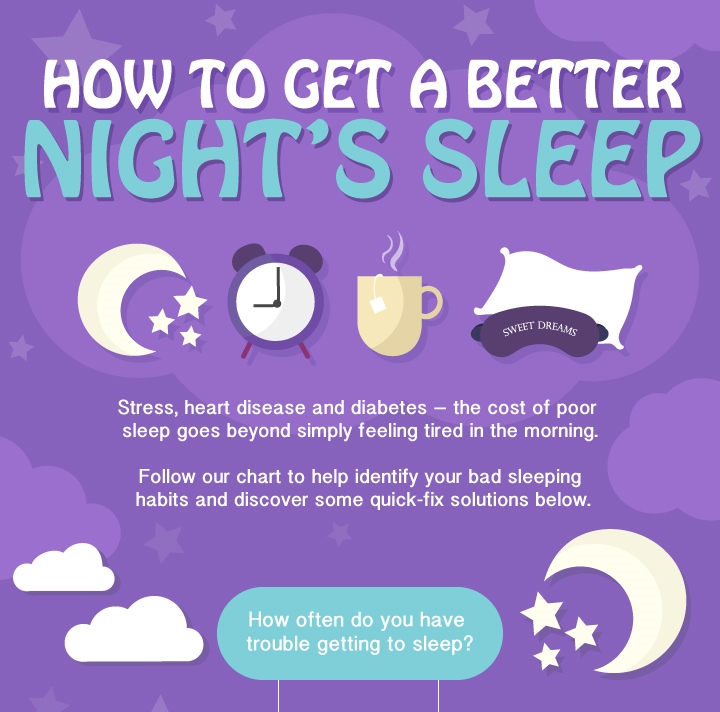 And your relationship with your baby and the time and attention you give baby during the day can affect the quality and quantity of baby’s sleep.
And your relationship with your baby and the time and attention you give baby during the day can affect the quality and quantity of baby’s sleep.
So it’s important that you get some help if you’re not getting enough sleep. You could start by asking family or friends for help. And if you feel that lack of sleep is affecting you mentally or emotionally, it’s a very good idea to talk with your GP or another health professional.
There’s a strong link between baby sleep difficulties and symptoms of postnatal depression in women and postnatal depression in men. But the link isn’t there if parents of babies with sleep difficulties are getting enough sleep themselves.
Languages other than English
- Arabic (PDF: 471kb)
- Dari (PDF: 469kb)
- Karen (PDF: 298kb)
- Persian (PDF: 420kb)
- Simplified Chinese (PDF: 502kb)
- Vietnamese (PDF: 324kb)
Newborn Sleep Tips and Habits – Happiest Baby
By Dr.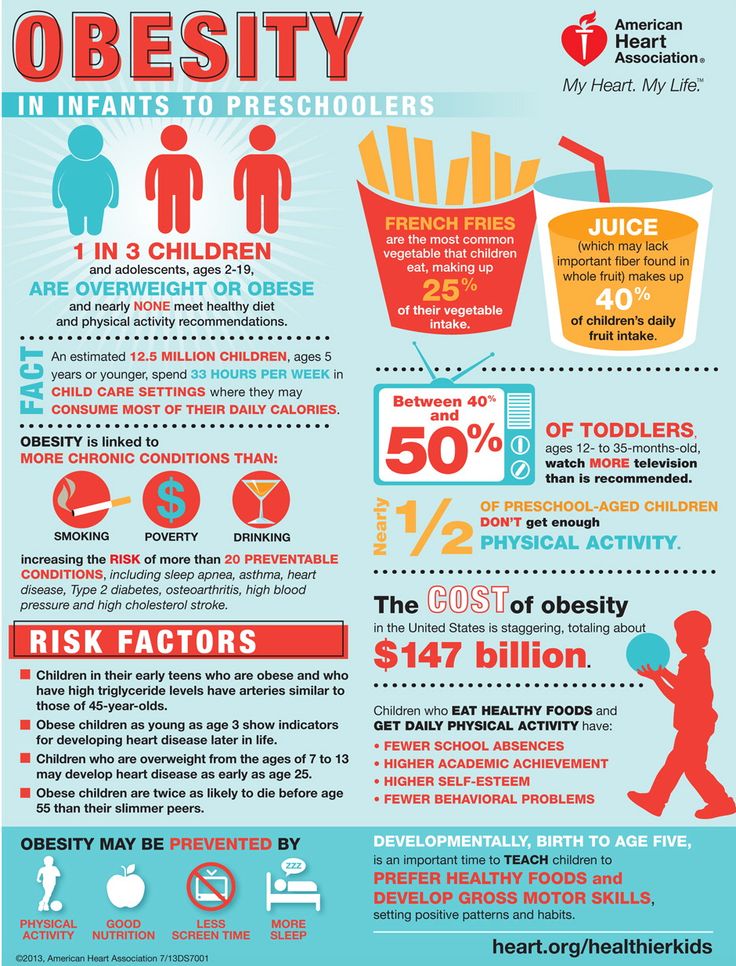 Harvey Karp, MD, FAAP
Harvey Karp, MD, FAAP
Baby Sleep Habits
We teach our babies sleep habits that make them dependent on us rather than ones that build confidence and self-calming ability.
What Are the Most Common Baby Sleep Habits?
The most common baby sleep habits that lead to poor slumber are bed-sharing and being put in bed asleep.
For example, the Sleep in America poll found that:
- 60% of infants are usually rocked to sleep (which is wonderful for newborns but can become a problem later on).
- 75% of infants fall asleep every night nursing or drinking a bottle.
- Many infants bed-share, which makes it easy for them to insist that their parents soothe them back to sleep—each time they awaken.
- As previously mentioned, only a third of parents use independence-building sleep cues like white noise or loveys every night.
Doctors in Rhode Island found that 3- and 8-month-old infants fell asleep easily—at bedtime and after nighttime awakenings—if they used loveys and pacifiers. The doctors also reported that all the poorly sleeping 8-month-olds—about 1 in 3 infants—were put into their cribs already asleep…and none routinely received a lovey!
The doctors also reported that all the poorly sleeping 8-month-olds—about 1 in 3 infants—were put into their cribs already asleep…and none routinely received a lovey!
Healthy Sleep Habits
Good sleep habits for babies include:
- Make sure your baby is not hungry at bedtime.
- Place your baby to bed when he is sleepy. Do not wait for your baby to be completely asleep before putting him to bed.
- Always place your baby on his back when putting him to bed.
- Create a regular sleep schedule that you follow consistently.
- Don’t let your baby nap for too long during the day to the point where it will impact his nighttime routine.
- Don’t let your baby sleep with a bottle.
- Offer a pacifier at bedtime. If your baby is breastfeeding, then wait until breastfeeding is established before offering pacifiers.
Breaking Bad Sleep Habits
Being your baby’s sleep aid is fun and cuddly, and I’m all in favor of it as long as you’re happy with it and always put your baby to sleep in a safe location.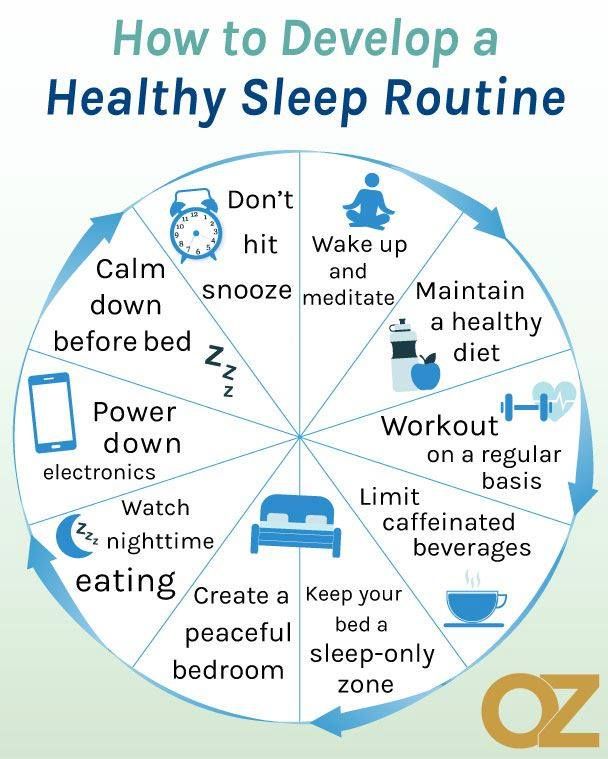 But if you’re tired and frustrated, this is the right moment to help your infant learn some new healthy sleep habits. Here are clues that it’s time for a change:
But if you’re tired and frustrated, this is the right moment to help your infant learn some new healthy sleep habits. Here are clues that it’s time for a change:
- You’re exhausted: You’re overeating; short-tempered with your toddler or husband; spacing out at work; driving dangerously because you’re so tired; feeling depressed; or considering smoking cigarettes again.
- You’re frustrated: You don’t know what to do about your infant’s sleep resistance, night waking, dependence on bed-sharing and frequent night nursing. And you are bickering a lot with your spouse.
- Your child’s unhappy: She’s extra cranky; cries at everything; has no patience; seems overtired; gets super irritable at bedtime; or wakes crying during the night.
If you’re seeing these signs, it’s time to swap your problematic sleep cues for ones that boost sleep and nurture your tot’s calm, confidence and competence. Don’t get me wrong…you should give your little lovebug tons of holding, rocking, patting and suckling.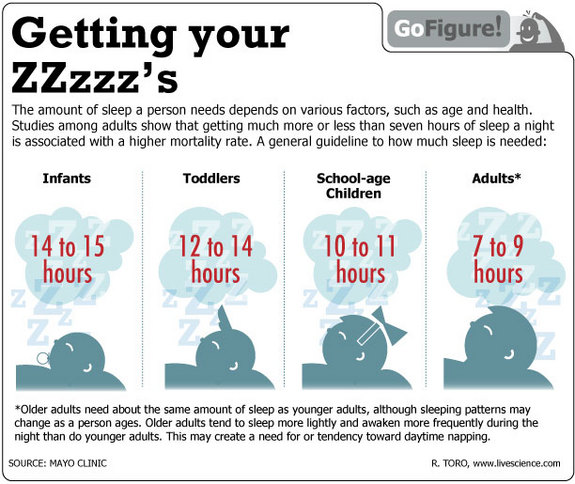 But to avoid sleep problems later, you need to develop healthy sleep habits and routines now that will teach her to self-soothe.
But to avoid sleep problems later, you need to develop healthy sleep habits and routines now that will teach her to self-soothe.
How to Improve Baby Sleep Habits?
The best way to start removing a dependence on being held and rocked to doze off is to use the wake-and-sleep technique every time you put your little one down to sleep.
Before laying your baby down for a nap or the night—wrap your child in a snug swaddle, put on white noise for baby sleep as loud as a shower, offer a feeding and let him drift to sleep in your arms. BUT, right after you slide him into bed, rouse him until his eyes open (scratch his toes, tickle his neck, etc). After a few seconds, he’ll fall back to sleep
If he cries, he may be uncomfortable or hungry for a meal, so pick him up to feed and settle him, but be sure to wake him again slightly right after laying him back down.
Yes, this technique may sound odd, but trust me: Those few seconds of drowsy waking are helping your child learn how to sleep through the night!
Did you know? Happiest Baby’s SNOO bassinet uses the same scientific principles as the wake-and-sleep technique.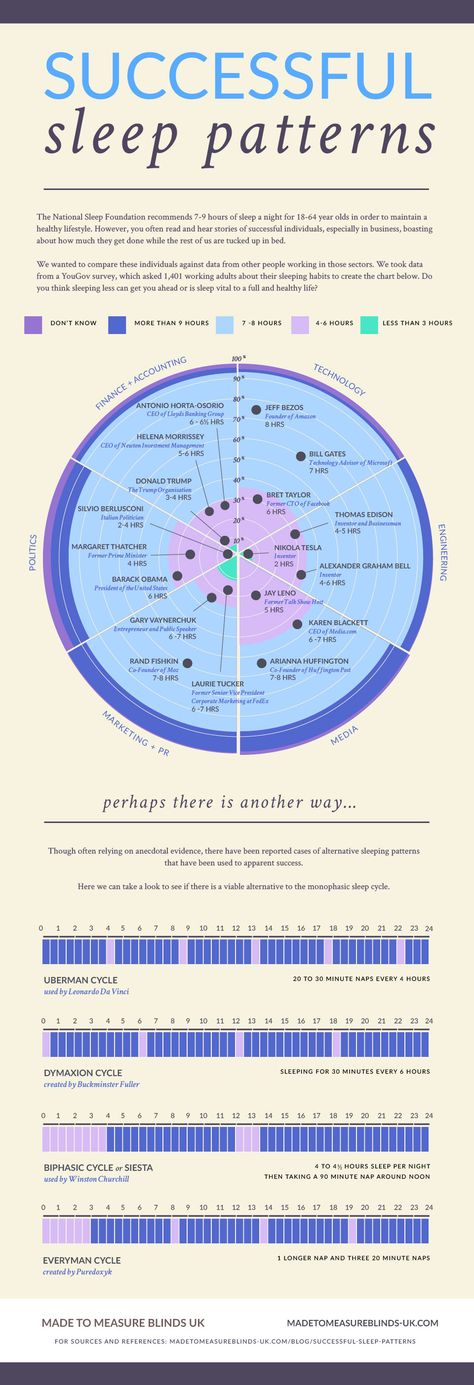 SNOO establishes great sleep habits from day one and sleep-trains babies automatically—most never have to cry it out. Learn more.
SNOO establishes great sleep habits from day one and sleep-trains babies automatically—most never have to cry it out. Learn more.
About Dr. Harvey Karp
Dr. Harvey Karp, one of America’s most trusted pediatricians, is the founder of Happiest Baby and the inventor of the groundbreaking SNOO Smart Sleeper. After years of treating patients in Los Angeles, Dr. Karp vaulted to global prominence with the release of the bestselling Happiest Baby on the Block and Happiest Toddler on the Block. His celebrated books and videos have since become standard pediatric practice, translated into more than 20 languages and have helped millions of parents. Dr. Karp’s landmark methods, including the 5 S’s for soothing babies, guide parents to understand and nurture their children and relieve stressful issues, like new-parent exhaustion, infant crying, and toddler tantrums.
View more posts tagged, sleep
Have questions about a Happiest Baby product? Our consultants would be happy to help! Connect with us at customercare@happiestbaby.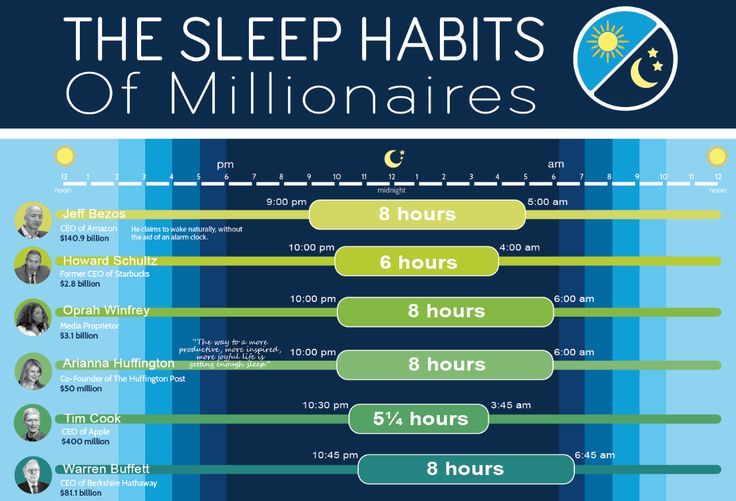 com.
com.
Disclaimer: The information on our site is NOT medical advice for any specific person or condition. It is only meant as general information. If you have any medical questions and concerns about your child or yourself, please contact your health provider.
Daily routine for a child under 1 year old
Daily routine is a system for distributing periods of sleep and wakefulness, meals, hygiene and health procedures, activities and independent human activities throughout the day.
Compliance with a rational daily routine corresponding to the age characteristics of the child contributes to his healthy growth and development. Getting used to performing various types of activities at the same time, the child is prepared for the upcoming type of activity at every moment of time, which ensures their easier and faster implementation. Compliance with the correct daily routine provides a good mood for the child and maintains a keen interest in the study of the world around him, contributing to his normal motor and psychoverbal development.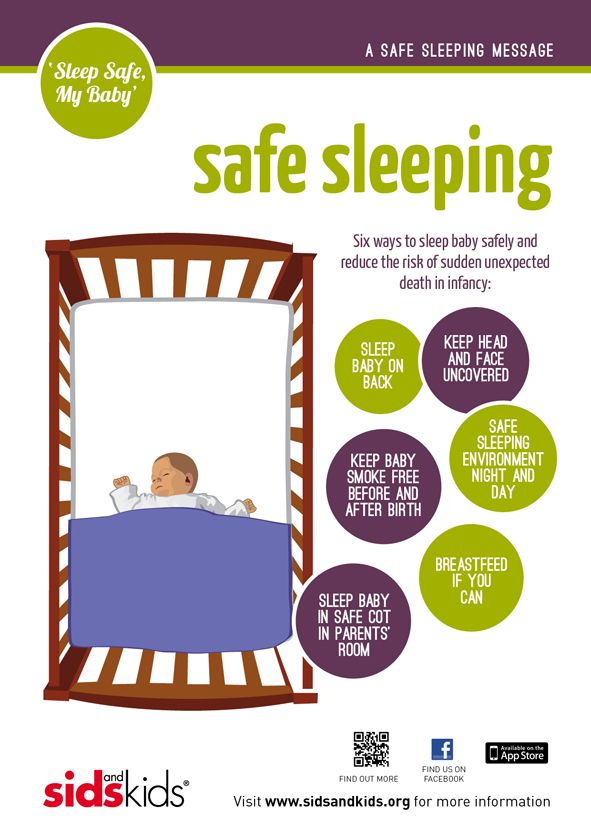
The child's daily routine includes the following obligatory elements: diet, time spent outdoors during the day, frequency and duration of sleep, mandatory classes to develop skills in accordance with age, free time.
In the first months after birth, a healthy newborn baby sleeps for most of the day, since all external stimuli are very strong for the nervous system of a child, accustomed to a cozy intrauterine environment, and cause its rapid exhaustion. As the child grows older, the duration of sleep gradually decreases and the time of wakefulness increases.
| Age | Daytime sleep mode | Night sleep | Wake mode |
| From birth to 2 months | 6 x 2.5 hours | 6 hours | During feeding |
| 2-4 months | 5 times 2-2.5 hours | 6.5 hours | 4 x 1.5 hours |
| 4-6 months | 4-5 times for 2 hours | 7 hours | 4 times 2 hours |
| 6-9 months | 3-4 times for 1. 5-2 hours 5-2 hours | 8 hours | 4 x 2.5 hours |
| 9-12 months | 2 x 1.5-2 hours | 9-10 hours | 4 times for 3-4 hours |
Closely related to the sleep-wake mode is the feeding mode of the baby. The sleep of a child in the first months of life is very sensitive and is easily disturbed under the influence of various extraneous stimuli, including hunger.
| Age | Mode | Example |
| From birth to 2 months | 7-8 times, every 3 hours | 6,9,12,15,18,21,24 (no night feeding) |
| From 2 to 6 months | 6-7 times, every 3.5 hours | 6, 9.30, 13, 16.30, 20, 23.30 (without night feeding) 6, 9.30, 13, 16.30, 20, 23.30, 03 (with night feeding) |
| From 7-12 months | 5 times, every 4 hours | 6,10,14,18,22 |
A child's stay in the fresh air is essential in the daily routine.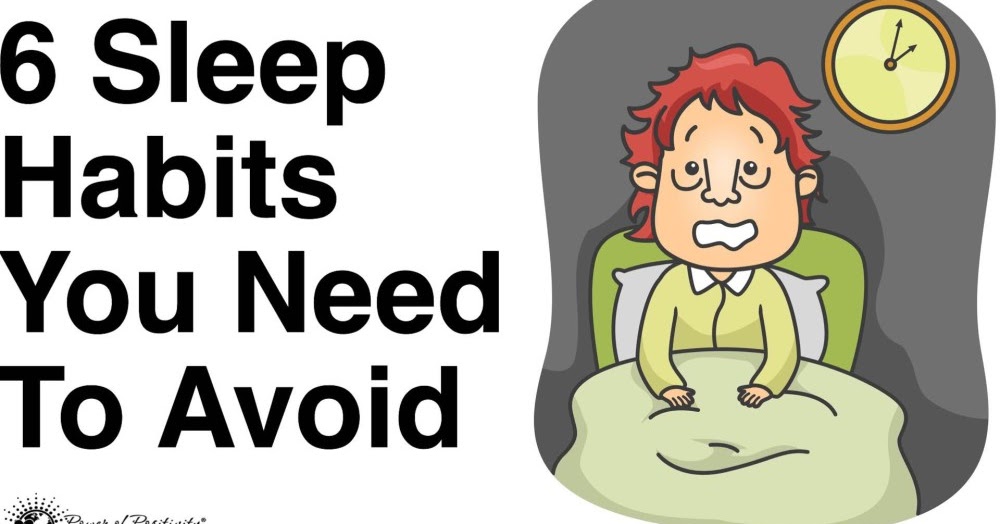 The total duration of stay in the open air for children under 1 year of age should be at least 5-6 hours a day. Fresh air has a calming effect on the baby, improves metabolic processes, and increases the body's defenses. In the summer, all games and activities should be held outdoors; in the cold and transitional seasons, two one-time walks of 1.5-2 hours are provided.
The total duration of stay in the open air for children under 1 year of age should be at least 5-6 hours a day. Fresh air has a calming effect on the baby, improves metabolic processes, and increases the body's defenses. In the summer, all games and activities should be held outdoors; in the cold and transitional seasons, two one-time walks of 1.5-2 hours are provided.
Fresh air also has a beneficial effect on sleep. By acting on the skin and mucous membranes of the nose and upper respiratory tract, it provides a faster fall asleep of the child and a higher quality of sleep. Sleeping outside can replace a walk, especially during the cold season.
The child's daily routine is generally individual, but ideally, one should strive to ensure that the child eats after waking up, and then stays awake until the next sleep. A well-slept baby eats with appetite and then calmly and actively plays or engages, and tired of games, easily goes to sleep.
When your baby is awake, try to keep him active and cheerful.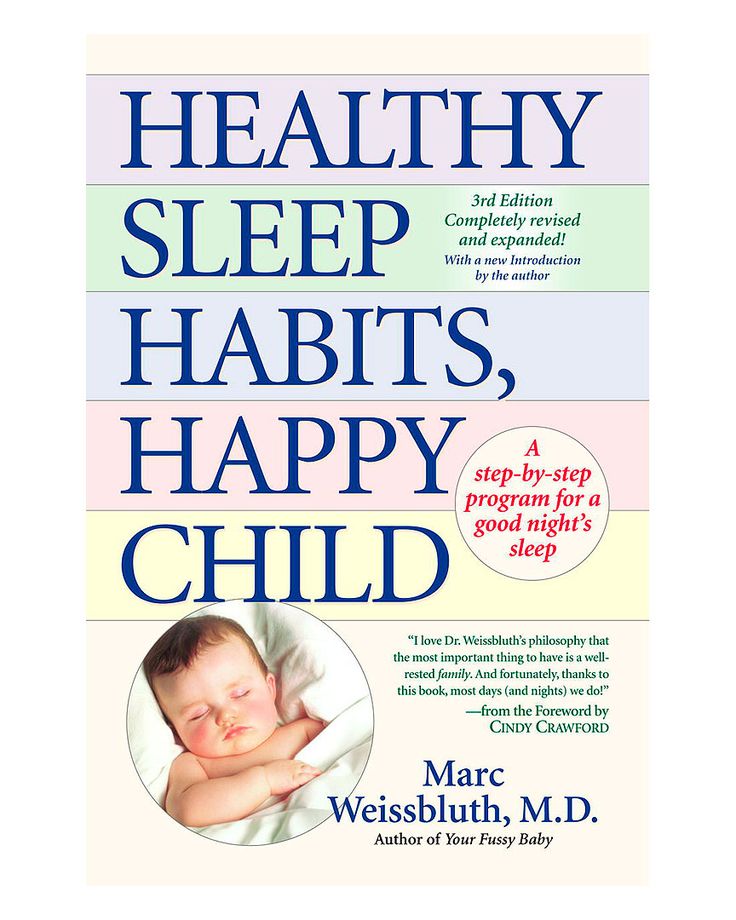 It is necessary to dress the child in loose clothing that does not hinder movement, provide access to toys appropriate for his age, and most importantly, actively participate in games and activities with the baby as a whole family.
It is necessary to dress the child in loose clothing that does not hinder movement, provide access to toys appropriate for his age, and most importantly, actively participate in games and activities with the baby as a whole family.
Author - Physiotherapist - DMITRIENKO T.G.
Sleep and wakefulness schedule of a newborn baby, baby sleep table by months
10/15/2018
73
Maria, four-month-old Vladik's mother, sleeps fitfully at night - most often sitting on a rocking chair and holding Vladik in her arms. The baby is difficult to put down - immediately crying, arching. This has been going on for a whole month and it is not known how long it will last - up to 6 months, up to a year? It is said that children at the age of three begin to sleep on their own in their beds. But what to do before the cherished three years? Let's figure it out!
The reason for Vladik's difficulty falling asleep is the baby's wrong sleep pattern. Tantrums to fall asleep, the inability to put the child to bed, frequent nocturnal awakenings and early rises are the result of an improper sleep and wakefulness regimen for infants and grown-up children.
Tantrums to fall asleep, the inability to put the child to bed, frequent nocturnal awakenings and early rises are the result of an improper sleep and wakefulness regimen for infants and grown-up children.
The child does not get enough rest, becomes overtired and therefore cannot sleep soundly. Therefore, if you are faced with the problems described, it is worth adjusting the child's regimen, taking into account his age and physiological needs.
NEWBORN BABY SLEEP MODE
Up to four months it is difficult to talk about some clear sleep and wakefulness pattern for a newborn baby. In the first 4 months after birth, the child goes through neurological "growing up" and adjustment of "sleepy" processes.
The sleep schedule for babies is something like this:
- In the first few weeks of life, a newborn can sleep from 17 to 20 hours a day. It is important to monitor the time of wakefulness, that is, the time between sleeps of the baby.
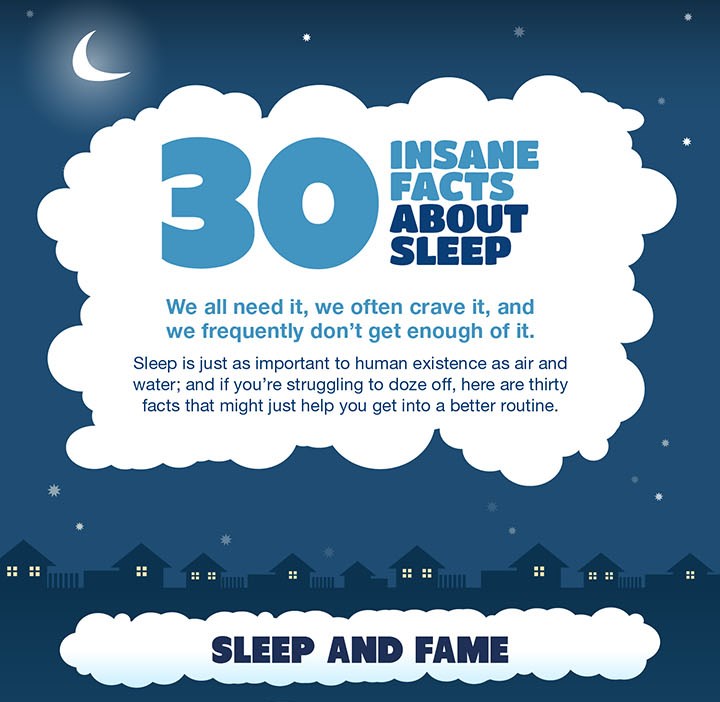 This includes feeding, getting ready for bed, and getting to bed. Up to two months, the waking time is no more than 75 minutes.
This includes feeding, getting ready for bed, and getting to bed. Up to two months, the waking time is no more than 75 minutes. - From 2 to 4 months, sleep is reduced to 14-16 hours a day. And the time of wakefulness, on the contrary, increases to 90 minutes. Even a 5-10 minute binge can cause short dreams and frequent awakenings of the child.
- Up to 3 months, daytime naps can be 20-30 minutes or, conversely, 2-4 hours. In each case, at this age, this is the norm. A baby's naps will begin to lengthen to 40-60 minutes after 3 months, and their number will decrease to 3-4.
Extend your newborn's sleep with rocking, breastfeeding, nipples, strollers. It is advisable to alternate each method of calming the baby so that there is no habit of one of them in the future.
If the previous sleep was still short, the time spent awake until the next sleep should also be reduced by at least 15 minutes.
To set your newborn's internal clock, take your newborn out to bright daylight often and dim the lights at night.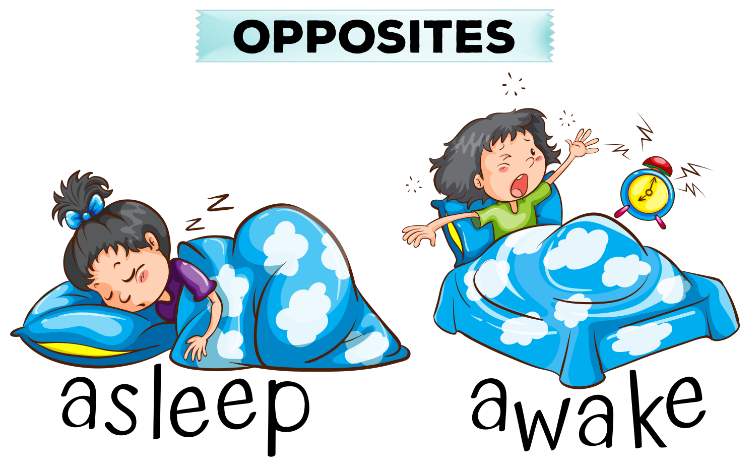 In the future, this will help to establish a sleep and wakefulness pattern for the baby.
In the future, this will help to establish a sleep and wakefulness pattern for the baby.
BABY'S SLEEP SCHEDULE after 4 months
The sleep and wake patterns of an infant after 4 months will be clearer with wake up at 06:00-07:00 am and early bedtime between 18:00-20:00 pm.
In physiological mode, daytime naps should be arranged at the intervals: 08:00-10:00, 12:00-14:00 and 15:30-17:00. During these periods of time, the hormonal background of the child changes - there is a peak in the production of the sleep hormone melatonin. Body temperature drops, metabolic processes in the body slow down. All this contributes to an easier transition from the state of wakefulness to sleep.
To find the right bedtime, be guided by the norms of wakefulness of the baby at each age.
To do this, use the table with the child's sleep schedule by months:
The table shows the average norms, for your baby they may be a little more or a little less.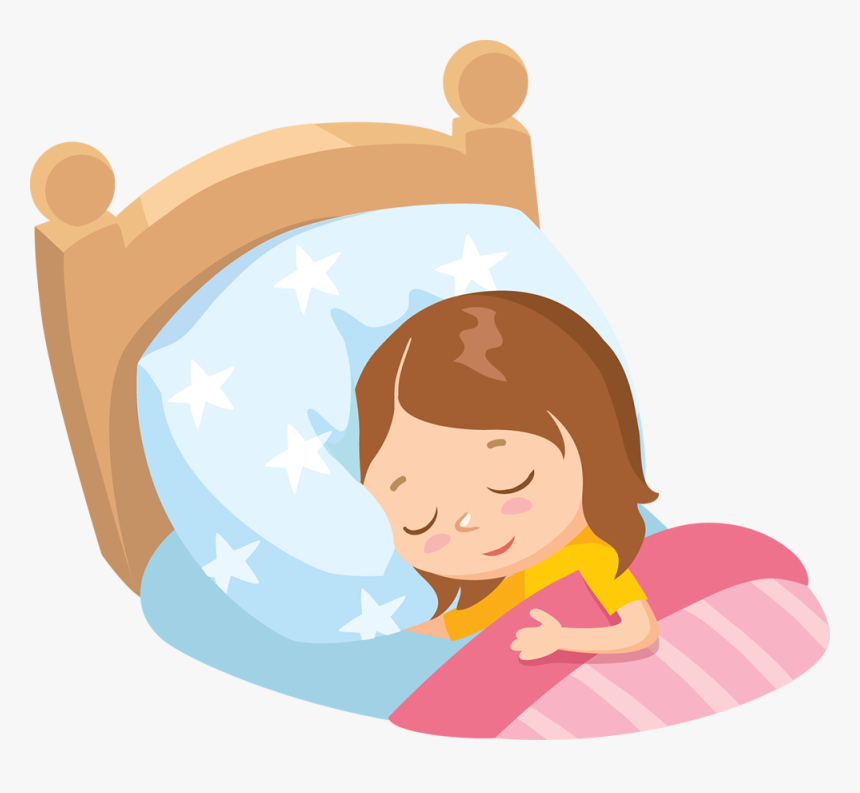 Also, the wake time in the morning and evening will be shorter than the daytime wake time. Be sure to watch your baby for signs of fatigue. Until 4-6 months, focus on them so as not to miss the time of easy laying.
Also, the wake time in the morning and evening will be shorter than the daytime wake time. Be sure to watch your baby for signs of fatigue. Until 4-6 months, focus on them so as not to miss the time of easy laying.
SLEEPING AND FEEDING OF THE CHILD
Feeding the baby in the first months of life is based on the demand of the child. During this period, the mother is lactating, and the more often the baby is on the breast, the more prolactin "channels" will open. Therefore, the sleep and feeding schedule of a newborn baby will be different every day.
By 4 months we organize feeding around dreams. Most often, the baby eats to wake up and fall asleep, to calm down, or just when he wants to visit his mother.
Sleep and feeding regimen at night by months:
- Up to 3-4 months, we feed the baby 2-4 times for 12 hours of night sleep.
- Babies 5-7 months require 1-2 feedings per night.
- By 10-12 months, most babies, regardless of type of feeding, can sleep through the night without waking up for feedings.
